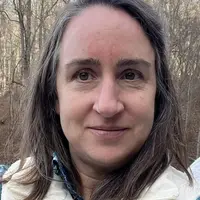From the Emerald Isle to the Red Planet: How to Make your Virtual Field Trip out of this World
Conveners
 Shelley Whitmeyer, James Madison University
Shelley Whitmeyer, James Madison University
 Steve Whitmeyer, James Madison University
Steve Whitmeyer, James Madison University
 Eric Pyle, James Madison University
Eric Pyle, James Madison University
Many high-impact, field-focused geoscience learning experiences have gone virtual to help reduce the spread of COVID-19 and maintain the continuity of this important aspect of students' preparation. Transforming field experiences to a virtual format has challenged us to reevaluate the associated learning objectives, implement new technologies, and develop innovative approaches to meeting those objectives. These changes have helped us accommodate the current need for social-distancing. However, the long-term benefits include removing barriers to field participation experienced by many students otherwise excluded from field learning.
The leaders will present and demonstrate the capabilities of web-based Google Earth, ArcGIS Pro, JMars, and Google Poly. Participants should bring their own laptops with downloads of requisite software.
Overview
This hands-on workshop will provide participants with opportunities to learn about multiple technologies available for creating virtual field experiences and time to begin developing their own virtual experiences. The leaders will present and demonstrate the capabilities of web-based Google Earth, ArcGIS Pro, JMars, and Google Poly, and how these have been employed for virtual field learning. Participants will also discuss learning outcomes and create a list of objectives that can be addressed in a virtual environment. After these presentations and discussions, participants will work independently or in small groups to create their own virtual field experiences. Prior to the workshop participants will be asked to assemble data for their virtual field experience and bring it to the workshop. This could also include materials to enhance the virtual experience for students, such as outcrop data, videos, and photos. At the conclusion of the workshop, participants will be asked to present a draft version of their trip and provide feedback on other participants' virtual experiences. After the conference, participants will be expected to complete their virtual field experience and upload it to the SERC "Teach the Earth" site. Follow-up time is estimated to be about 8 hours but will vary by project.
Target Audience
This workshop is designed for geoscience educators who wish to share the learning opportunities of a field experience with their students but are unable to take students in the field, or for those students otherwise unable to participate. Limited access to the field may be due to health concerns (COVID-19 or other), time limitations, or financial constraints. Workshop leaders will be available to help with technical questions; however, give the short duration of the workshop, participants must be comfortable working somewhat independently with at least one platform (Google Earth, ArcGIS Pro/ArcGIS Online, JMars).
Goals
This hands-on workshop will provide participants with opportunities to:
- discuss learning goals suitable for virtual field experiences;
- learn about a variety of technologies available for creating virtual field trips;
- begin designing and developing their own virtual experience;
- explore options for assessment of student work; and
- participants will add their materials to the "Teaching with Online Field Experiences" site by August 15
Format
The workshop will run for 3 hours each day. Participants are expected to have a computer with the software of their choice installed before the workshop begins.
Day 1
- Introduction to Workshop and Participants
- Discussion of Field-Based Learning Objectives
- Overview of each platform, including example virtual field experiences
- Participants discuss and decide on a platform and field experience theme
Day 2
- Overview of Groups/Projects
Platform Based (e.g. ArcGIS, Google Earth, JMars) Discussion of Prospective Projects
Discussion of Intended Learning Outcomes
- Independent/Team Work on Virtual Field Experiences
Day 3
- Progress Report Out
- Discussion of Assessment Methods
- Continue Work On Field Experiences
- Workshop Wrap-Up
